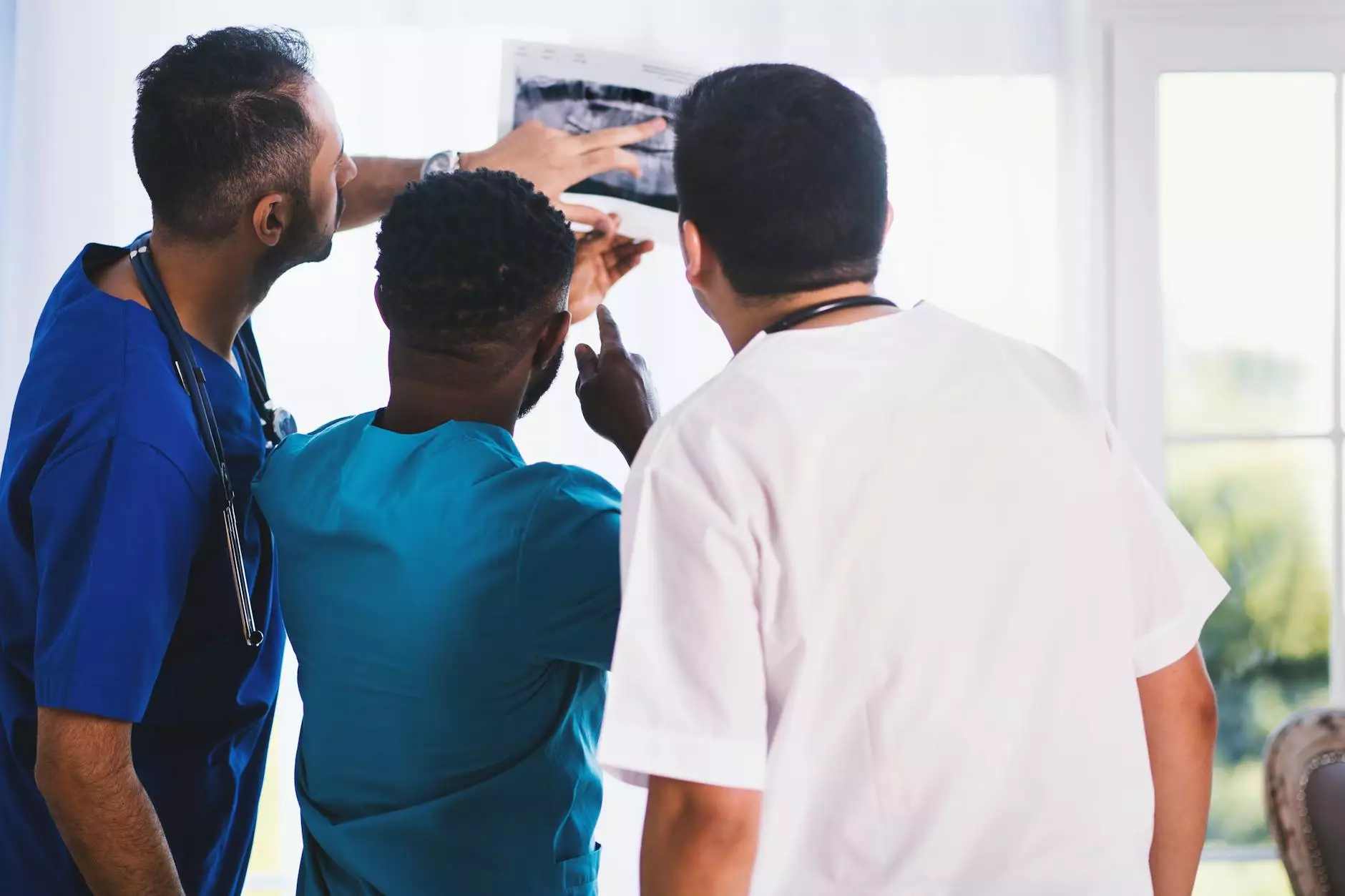Comprehensive Guide to rls care: Enhancing Vascular Health & Wellbeing

In the realm of vascular medicine, ensuring optimal rls care is crucial for improving patient outcomes, especially for those affected by Restless Legs Syndrome (RLS). As a specialized discipline within the broader scope of Doctors, Health & Medical, vascular medicine plays a vital role in diagnosing and managing conditions that contribute to or coexist with RLS. This extensive guide aims to delve deep into rls care, exploring effective treatment modalities, the importance of personalized medical attention, and innovative solutions offered by trufflesveinspecialists.com for individuals suffering from this condition.
Understanding Restless Legs Syndrome and Its Vascular Connections
Restless Legs Syndrome (RLS), also known as Willis-Ekbom disease, is a neurological disorder characterized by an uncontrollable urge to move the legs, often accompanied by uncomfortable sensations. These sensations typically intensify during periods of rest or inactivity, especially in the evening and nighttime, significantly impacting sleep quality and daily life. While RLS has traditionally been viewed through a neurological lens, emerging research highlights the significant role of vascular health in its development and progression.
The Vascular Link to RLS
Recent scientific studies suggest that vascular issues, such as compromised blood flow and vein disorders, can exacerbate symptoms of RLS. When blood circulation is impaired, tissue oxygenation decreases, leading to nerve irritation and heightened sensory disturbances. This interconnected relationship underscores the importance of specialized vascular assessment and targeted rls care to address underlying circulatory problems.
The Role of Vascular Medicine in Providing Superior rls care
Vascular medicine is a subspecialty focused on diagnosing and treating disorders of the blood vessels, including veins and arteries. It plays an essential role in delivering comprehensive rls care by addressing vascular contributors that may underlie or worsen RLS symptoms. When diagnosed early and managed appropriately, vascular interventions can significantly reduce symptom severity and improve overall quality of life.
Key Components of Effective RLS Care in Vascular Medicine
- Thorough Vascular Evaluation: Utilizing advanced diagnostic tools such as Doppler ultrasound, venous insufficiency tests, and vascular imaging.
- Personalized Treatment Plans: Tailoring interventions based on individual vascular profiles and symptom severity.
- Comprehensive Patient Education: Informing patients about lifestyle modifications, symptom management, and vascular health maintenance.
- Multidisciplinary Approach: Collaborating with neurologists, sleep specialists, and primary care physicians for holistic management.
- Innovative Therapeutics: Incorporating minimally invasive procedures, vein ablation techniques, and vascular stabilization therapies.
Advanced Diagnostic Techniques for rls care
Accurate diagnosis is the cornerstone of effective rls care. Advanced diagnostic methods allow clinicians to identify vascular abnormalities that may contribute to RLS symptoms. Some state-of-the-art techniques include:
- Doppler Ultrasound: A non-invasive method to assess blood flow and detect venous reflux or obstructions.
- Venous Doppler Mapping: Provides detailed imaging of vein structure and functionality, highlighting potential areas of concern.
- Capillaroscopy: Evaluates microvascular circulation, especially in cases where microvascular impairments are suspected.
- Angiography: More invasive but offers precise visualization of arterial and venous systems when complex vascular anomalies are suspected.
Effective Treatment Modalities for rls care
The spectrum of rls care includes lifestyle modifications, pharmacologic interventions, and vascular treatments. An integrative approach ensures comprehensive management of symptoms and addresses root causes.
Lifestyle and Dietary Strategies
Patients are encouraged to adopt habits that promote vascular health and minimize RLS flare-ups, including:
- Regular physical activity: Engaging in moderate exercise to improve circulation.
- Healthy diet: Incorporating iron-rich foods and avoiding caffeine and alcohol, which can worsen symptoms.
- Sleep hygiene: Maintaining consistent sleep schedules and creating a restful environment.
- Leg elevation: Enhancing venous return by elevating legs when resting.
Pharmacologic Treatments
Medications aimed at alleviating RLS symptoms and improving vascular health include:
- Dopamine agonists: Such as pramipexole and ropinirole, which help regulate nerve signals.
- Iron supplementation: Correcting iron deficiencies that may aggravate RLS.
- Gabapentinoids: Managing nerve-related discomfort with medications like gabapentin.
- Vasodilators: Improving blood flow in affected limbs, especially in vascular-compromised patients.
Vascular Interventions in RLS Management
For patients with identified venous or arterial insufficiencies, targeted procedures can be transformative:
- Venous Ablation: Using laser or radiofrequency energy to close incompetent veins, thereby restoring proper blood flow.
- Endovenous Treatment: Minimally invasive procedures performed in outpatient settings, providing quick recovery and excellent outcomes.
- Compression Therapy: Utilizing medically prescribed compression stockings to enhance venous return.
- Surgical Interventions: Reserved for severe cases where other treatments have failed, including vein removal or bypass surgeries.
The Importance of Personalized rls care and Patient-Centered Approaches
Every individual’s vascular health profile and lifestyle are unique, making personalized treatment plans essential. A patient-centered approach involves detailed medical history assessments, vascular diagnostics, and tailored therapies to optimize results. For example, a patient with underlying venous reflux may benefit most from minimally invasive vein treatments, whereas another with microvascular impairments may require different strategies.
Collaborative Care for Optimal Outcomes
Effective rls care involves interdisciplinary collaboration. Vascular specialists work alongside neurologists, sleep medicine experts, and primary care physicians to craft comprehensive management plans. This teamwork ensures that all underlying causes are addressed, symptoms are managed effectively, and patient education is prioritized.
Innovations in Vascular Medicine for RLS Management
The field of vascular medicine is rapidly evolving, with new technologies and therapies enhancing rls care. Cutting-edge developments include:
- High-frequency laser ablation: Providing precise and minimally invasive vein treatments.
- Theranostics: Combining diagnostic imaging with targeted therapies for personalized care plans.
- Microvascular repair techniques: Addressing subtle circulatory issues that traditional methods may overlook.
- Regenerative medicine: Exploring stem cell therapies to promote vascular repair and nerve regeneration.
Long-Term Management and Follow-up in rls care
Achieving lasting relief from RLS symptoms requires ongoing management and regular follow-up. Strategic long-term plans include routine vascular assessments, continuous medication review, and lifestyle adjustments. Patients should be encouraged to monitor symptoms, keep open communication with their healthcare team, and adhere to treatment plans for sustained benefits.
Choosing the Right Vascular Specialist for rls care
When seeking rls care, selecting a qualified specialist with extensive experience in vascular medicine and minimally invasive procedures is vital. An ideal provider will offer comprehensive diagnostics, personalized treatment options, and a commitment to patient education and support. Trufflesveinspecialists.com exemplifies these standards, combining expertise, advanced technology, and compassionate patient care to deliver exceptional outcomes.
Conclusion: Empowering Patients Through Expert rls care
Effective management of Restless Legs Syndrome hinges on a multidisciplinary, personalized approach that emphasizes vascular health. By integrating advanced diagnostic techniques, targeted interventions, and lifestyle modifications, healthcare providers can significantly reduce symptoms, improve sleep quality, and elevate overall quality of life. Trufflesveinspecialists.com is dedicated to leading this movement, providing cutting-edge rls care within a comprehensive vascular framework. Embrace this holistic approach to take control of your health and experience the relief you deserve.









